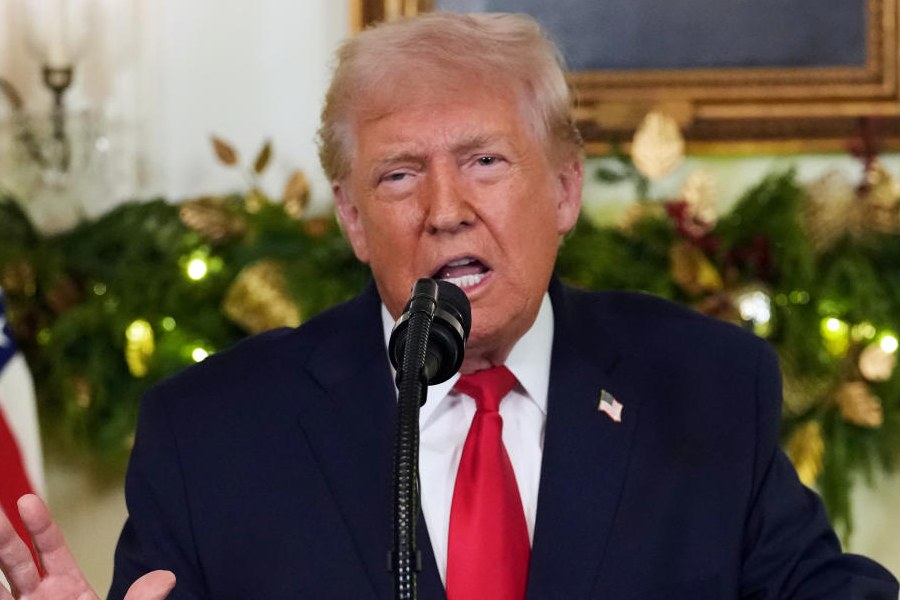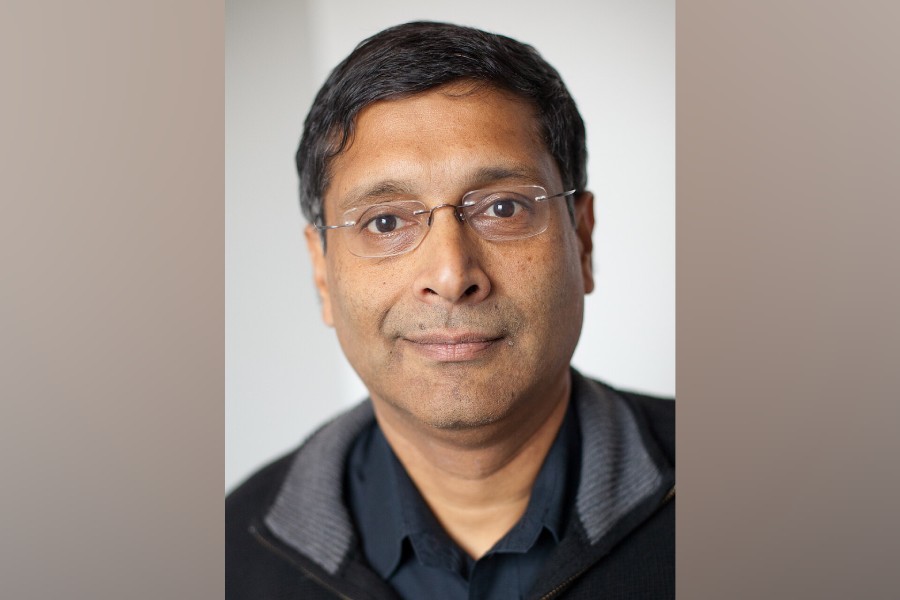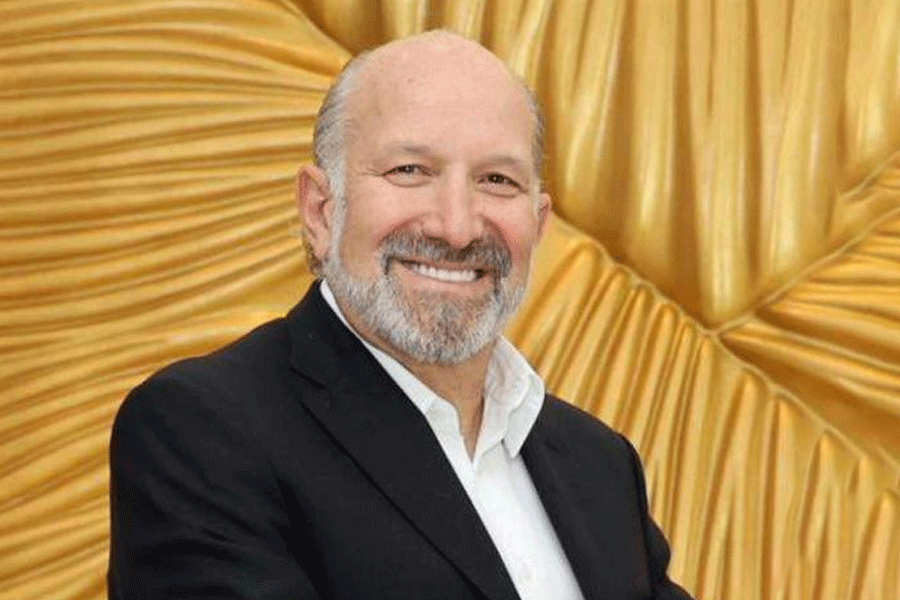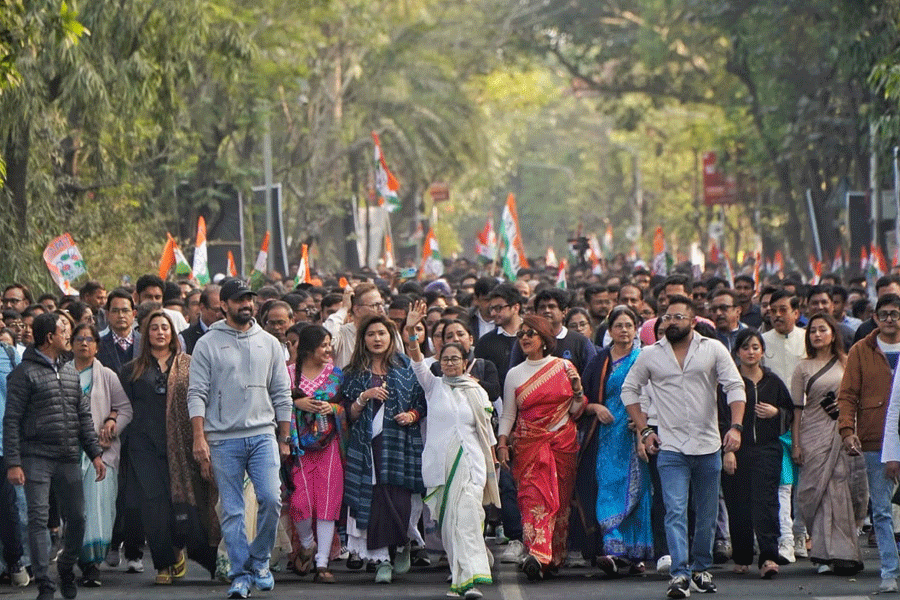It ought to be an axiom of international relations that the geopolitical importance of a State guest can be measured by the size of the whoppers he is allowed to get away with in public. In his address to the joint session of the US Congress, the Indian prime minister, speaking of India’s diversity, said this: “We are home to all faiths in the world and we celebrate all of them.” The first claim is correct; the second, if the ‘we’ in question includes the prime minister, his political party, the Bharatiya Janata Party, and the parent organisation that politically birthed both, the Rashtriya Swayamsevak Sangh, is laughably untrue.
Mr Modi’s own speech gave the lie to that second claim. He talked up the significance of India’s seventy-five years of Independence by contrasting it with a thousand years of foreign rule which, in the historical arithmetic of the sangh parivar, is a simple sum: 750 years of Muslim rule plus 250 years of British rule. Through this millennium of oppression, Muslims remained irredeemably foreign in the sangh’s rudimentary historical imagination. One Thousand Years of Servitude is a majoritarian epic waiting to be written.
Far from celebrating India’s diversity, the overriding aim of the prime minister’s politics has been to show Indian Muslims their place and to insist that the organic, aboriginal citizens of India are Hindus. The ideologues of the sangh have always maintained that non-Hindus need to acknowledge their ancestral Hindu-ness before they can be recognised as reliable citizens. In the RSS’s version of a diverse India, Muslims or Christians converting to Hinduism are reverting to their original state, their conversion is a homecoming.
When our diversity-celebrating prime minister left India, Manipur had been burning for a month and a half, with its valley Hindus and highland Christians locked in a bloody civil war, with the BJP chief minister of the state belligerently (and predictably) blaming the Christian Kukis for the violence.
The BJP chief minister of Assam, Himanta Biswa Sarma, offered an interesting gloss on the BJP’s attitude towards religious minorities at around the same time as his boss was talking up diversity in America.
A journalist critical of Modi cited on Twitter Barack Obama’s comments in an interview where he had said that Biden ought to talk to the prime minister about protecting the rights of Muslim minorities. She provocatively asked if the government of Assam, which has a habit of sending its policemen to distant states in India to arrest political enemies, was going to file an FIR against Obama in Guwahati for hurting the sentiments of the Indian people. “Is Assam police on its way to Washington to get Obama offloaded from some flight and arrest him?”
This tweet wouldn’t have been worthy of comment had the Assam chief minister not chosen to respond directly to this tweet in the most intemperate way. He wrote: “There are many Hussain Obama [sic] in India itself. We should prioritize taking care of them before considering going to Washington. The Assam police will act according to our own priorities.” The reference to Hussain Obama was an unsubtle reference to Assam’s Muslim population. Sarma and Biren Singh, the Manipur chief minister, are the prime minister’s party colleagues, co-celebrants of the prime minister’s version of India’s diversity in their own special way.
The prime minister made it a point to talk up the diversity of India’s eating habits. Every hundred miles, he said, India’s cuisine changes. What he forgot to mention was the ways in which the diets of Indian Muslims have been policed, the way in which politicians, the police and cow vigilantes in North Indian states have criminalised the cattle trade, and the gruesome lynchings of Muslim men on the suspicion that they were eating or trafficking in beef.
The diversity of India is a fact. A country’s ability to accommodate this diversity, instead of suppressing it in the name of national unity or security, is called pluralism. Modi was marketing diversity not pluralism, a diversity disciplined to speak, in his words, “... in a single voice.”
For its Indian audience, Modi’s speech was interesting less for what it said (or didn’t say) than for the way in which the speech and his visit was received. The Western press broadly celebrated his visit and the cooperation it presaged with a few sotto voce caveats about minority protection and India’s illiberal democracy. The reason was straightforward: in the world’s changing balance of power, Washington needed India on its side to contain China. There were a few other reasons for Indo-US cooperation that were offered to dress up the nakedness of the main reason, namely the size of its population, the potential of its economy, and its burgeoning infrastructure.
The Economist, in its capacity as the house organ of the Atlantic alliance, was the keenest peddler of this position. It published a special issue focused on India with several articles devoted to the visit. The burden of its song was that Modi was an illiberal, anti-minority leader who was hugely popular and had done great things for India’s infrastructure. But his popularity, according to The Economist, wasn’t premised on his majoritarianism and that, in some unspecified way, made it all right for the West to integrate him and India into the cordon sanitaire that America had designed to contain China.
You can see why The Economist is careful to distinguish Modi’s majoritarianism from his popularity. If it were to concede that Modi’s popularity is in large part due to his demagogic success in making majoritarianism a form of mass politics, its advocacy of Modi’s India might begin to seem like appeasement. That is still a line that Atlanticists, however blithely transactional they might otherwise be, are unwilling to cross. And so Modi is cast as a plain vanilla authoritarian, unappealing but not sinister.
What The Economist and Joe Biden don’t seem to understand is that this is not a transaction that they can control. Half the population of Europe and the United States of America votes for politicians exactly like Modi. One of the more entertaining things about Modi’s visit has been the sight of Biden welcoming a foreign leader who had openly campaigned for his predecessor and liberal bête noire, Donald Trump. There is a genuine affinity between the politics of the supporters of Giorgia Meloni, Marine Le Pen, Andrzej Duda, Benjamin Netanyahu and Trump and the politics that Modi represents. And it is these nativist voters who drive policy. From the Abrahamic Accords to the torpedoing of the Iran nuclear deal, every ‘achievement’ of Trump’s has become durable US policy under Biden.
The idea that ‘illiberal authoritarians’ can be managed without a cost to whatever it is that passes for liberalism in the minds of leaders like Biden, Keir Starmer and Emmanuel Macron is self-serving and naive. France feels like a fortnight away from fascism every time there is a presidential election and Macron has begun talking up France’s ‘Judaeo-Christian’ foundations to secure his right flank. Starmer is as enthusiastic about stopping the boats as Sunak.
Biden’s plan to harness Modi to America’s cause is no different from Trump’s; you could plausibly argue that in this matter, Trump begat Biden. When Biden embraces Modi, when Pramila Jayapal joins her fellow Democrats in giving his speech a standing ovation, it isn’t Modi who is being played; it is Biden and the Democratic Establishment being pulled a little further into the gravitational field of intolerant majoritarianism, an orbit that Modi and Trump and their ideological kin in Europe have long inhabited.
mukulkesavan@hotmail.com











